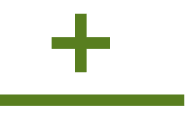Multi-discipline EPC projects require many different types of people with various skill sets who can work together in an integrated fashion to deliver the project on time and on budget.
This article gives an overview of the roles and responsibilities of the various engineering disciplines in project execution for EPC project teams.
Understanding the Roles and Responsibilities of Engineering Disciplines in Project Execution
Whether small or large, for any project executed inside an existing facility, the following items, at minimum, are required prior to the execution phase of the project:
- Complete project piping and instrumentation diagram (P&ID)
- Major equipment drawings and specifications
- Preliminary equipment layout drawings
- Existing infrastructure surveys (as needed throughout the project)
Engineering Team During Detail Design: Common Disciplines
The following engineering and design disciplines are involved in most multidiscipline EPC projects during the execution phase: civil/structural, piping, mechanical, and instrumentation/electrical/controls (IEC).
The process engineering team will be involved as necessary to confirm design details or basis, but most of their work happens at the beginning of the project. Other specialties will be involved as necessary (e.g., fire protection), but for the bulk of the work, the aforementioned “three” groups represent the highest percentage of required labor hours.
Civil/Structural Engineering and Design
- Groundwork
- Drainage
- Foundations
- Steel supports and structures
- Soil samples/geotechnical investigations
- Existing drawings
- Equipment weights
Piping Design and Engineering
- Determining equipment locations in the plant
- 3D models of piping
- Locating nozzles on equipment
- Stress analysis (finite elements analysis, or FEA) of piping systems
- Piping specifications
- Complete project P&IDs
- Line list with piping sizes and process conditions
Instrument, Controls, and Electrical Design
- Instruments
- Cause and effect diagrams
- Loop diagrams
- Automation
- Power systems and distribution designs
- Load studies
- One-line diagrams (also known as an electrical single-line diagram [SLD])
- Power sources
- Input/output information
Process/Mechanical Engineering
Most process and mechanical engineering should have been done prior to detail design when equipment is being identified and specified, and process and mechanical data sheets are filled out. However, process and/or mechanical duties during detail design may include:
- Conformance verification of the final design with the design basis. For instance, a hydraulic analysis may be necessary to confirm initial assumptions after equipment is located and piping is routed.
- Any details that have been left until the detail design phase (relief valve calculations/specifications, vendor drawing reviews, etc.)
Project Team Composition
The project team will vary depending on project specifics, but a simple rule of thumb for a typical project is a labor hour composition of civil/structural (25%), piping (50%), and IEC (25%). Note that this can vary greatly depending on the unique characteristics of the project.

In addition to the core Engineering Disciplines in Project Execution, typical roles for the engineering phase of an EPC project will include:
- Project Manager: The project manager provides overall scope, schedule, and budget control for the project.
- Project Engineer: The project engineer works for the project manager and provides a technical interface among the engineering disciplines, clients, and vendors.
H+M Industrial EPC: Delivering Capital Project Success Since 1988
For more than 35 years, H+M Industrial EPC has provided leading capital project execution services to the energy, chemical, terminal, and logistics industries. Being client-focused, we provide cost-effective, fit-for-purpose engineering solutions to meet your needs. We will work closely with you to bring your vision to life while prioritizing the success of your projects with every decision we make.

The H+M Industrial Team
For over three decades, we have provided best-in-class capital project management services to Energy and Chemical industries through our proven EPC approach. We are dedicated to providing trust, experience, and efficiency through all stages of engineering, procurement, and construction--on budget and on time.

Partnering with H+M Modular
H+M Modular, a division of H+M Industrial EPC, specializes in custom fabricated equipment, modules, and skids for energy and chemical industries. The approach emphasizes the potential for decreased risk through more controlled fabrication, leading to enhanced quality and safety, reduced labor costs and construction times, improved labor availability, and solutions to geographic challenges. We are dedicated to providing trust, experience, and efficiency through all stages of traditional and modular construction projects using our proven EPFC approach, If you're considering modular fabrication, we invite you to connect with us to learn about how modular solutions can improve project outcomes.





